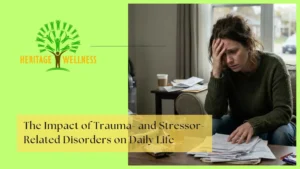Introduction
Modern life can feel like an endless to-do list, making it easy to feel overwhelmed, anxious, or emotionally drained. But taking small, intentional steps to manage stress isn’t just about relaxation; it’s essential for protecting your mental and physical health.
In this guide, we’ll share practical, research-backed strategies to help you manage stress, protect your mental health, and build a healthier, more balanced life.

Understanding the Connection Between Stress and Mental Health
Stress isn’t always harmful. Short bursts of stress can motivate us to finish projects, meet deadlines, or prepare for big moments. But when stress becomes chronic, it can:
- Weaken the immune system
- Trigger anxiety and depression
- Disrupt sleep
- Lead to burnout or fatigue
Learning how to manage stress helps keep your mental health strong and your body resilient.
Practical Tips to Find Balance and Reduce Stress
1. Practice Mindful Breathing
Even a few minutes of slow, deep breathing can lower cortisol (the stress hormone) and help your mind reset.
How to try it:
- Sit comfortably and close your eyes.
- Inhale through your nose for 4 seconds.
- Hold for 4 seconds.
- Exhale through your mouth for 6 seconds.
Repeat for 2–5 minutes.
2. Prioritize Daily Movement
Exercise is one of the most effective ways to reduce stress:
- It releases endorphins (natural mood boosters)
- Improves sleep quality
- Provides a mental break from daily worries
Even a 20-minute walk can make a big difference.
3. Create a Simple Morning Routine
Starting your day intentionally helps you feel calmer and more in control.
Ideas to include:
- Stretching or light yoga
- Writing in a gratitude journal
- Planning your top three priorities for the day
Consistency is more important than perfection.
4. Limit Digital Overload
Constant notifications and screen time increase anxiety and make it harder to relax.
Try:
- Setting phone-free times (like during meals or the first hour after waking)
- Using apps to track and reduce screen time
- Turning off non-essential notifications

5. Stay Connected with Supportive People
Strong social connections act as a buffer against stress:
- Schedule regular calls or coffee meetups
- Join a local group or club around your interests
- Share your feelings honestly with trusted friends or family
Talking things through can lighten your emotional load.
6. Practice Gratitude Daily
Writing down three things you’re grateful for each day:
- Shifts your focus from problems to positives
- Improves mood and resilience
- Takes less than five minutes
Keep a notebook by your bed to make it a nightly habit.
7. Set Healthy Boundaries
Burnout often comes from trying to do too much or please everyone.
Tips to set limits:
- Learn to say “no” kindly but firmly
- Communicate your needs clearly at work and home
- Schedule regular downtime in your calendar, and treat it like any appointment
8. Nourish Your Body for Mental Health
Balanced nutrition supports brain health and emotional well-being:
- Choose whole foods: fruits, vegetables, whole grains, lean proteins
- Limit caffeine and sugar, which can worsen anxiety
- Stay hydrated throughout the day

9. Embrace Relaxation Techniques
Simple techniques to calm the mind include:
- Guided meditation apps
- Progressive muscle relaxation
- Listening to calming music or nature sounds
Experiment to find what feels most relaxing for you.
10. Seek Professional Help When Needed
If stress or anxiety feels overwhelming, remember:
- Speaking to a therapist or counselor is a sign of strength
- Support groups can help you feel less alone
- Many workplaces and insurance plans cover mental health resources
Professional guidance can help you build healthier coping strategies.
Building Long-Term Resilience
Reducing stress isn’t about removing all challenges; it’s about changing how you respond:
- Accept what you can’t control
- Focus your energy on what you can change
- Celebrate small wins to stay motivated
Over time, these habits build resilience, making you better equipped to handle life’s ups and downs.
Conclusion
Managing stress and mental health doesn’t always require major lifestyle changes. Small, daily steps, like mindful breathing, movement, gratitude, and digital boundaries, can make a huge difference in how you feel.
By practicing these strategies consistently, you can find balance, protect your mental health, and enjoy a calmer, healthier life. Contact us today!






